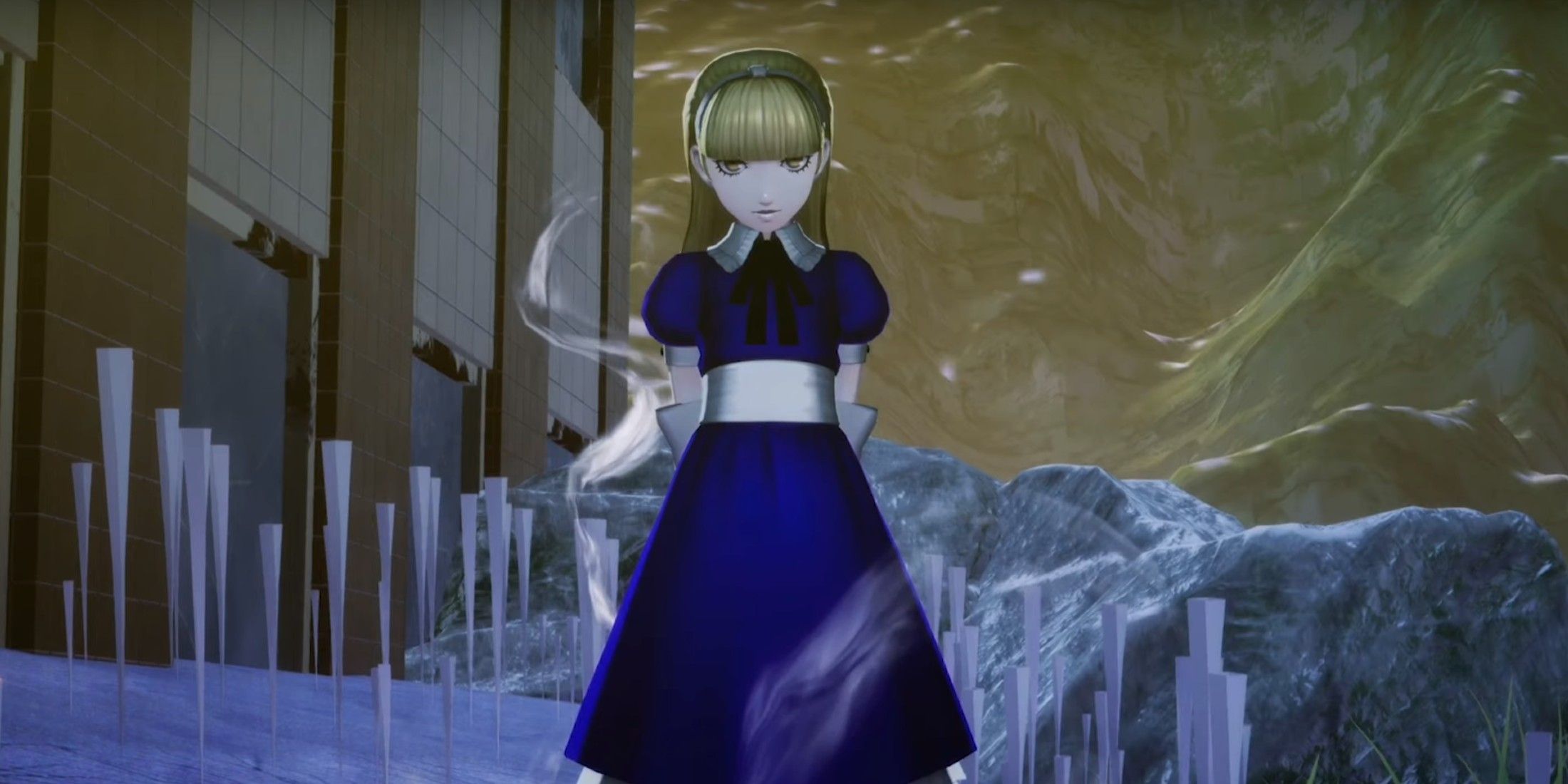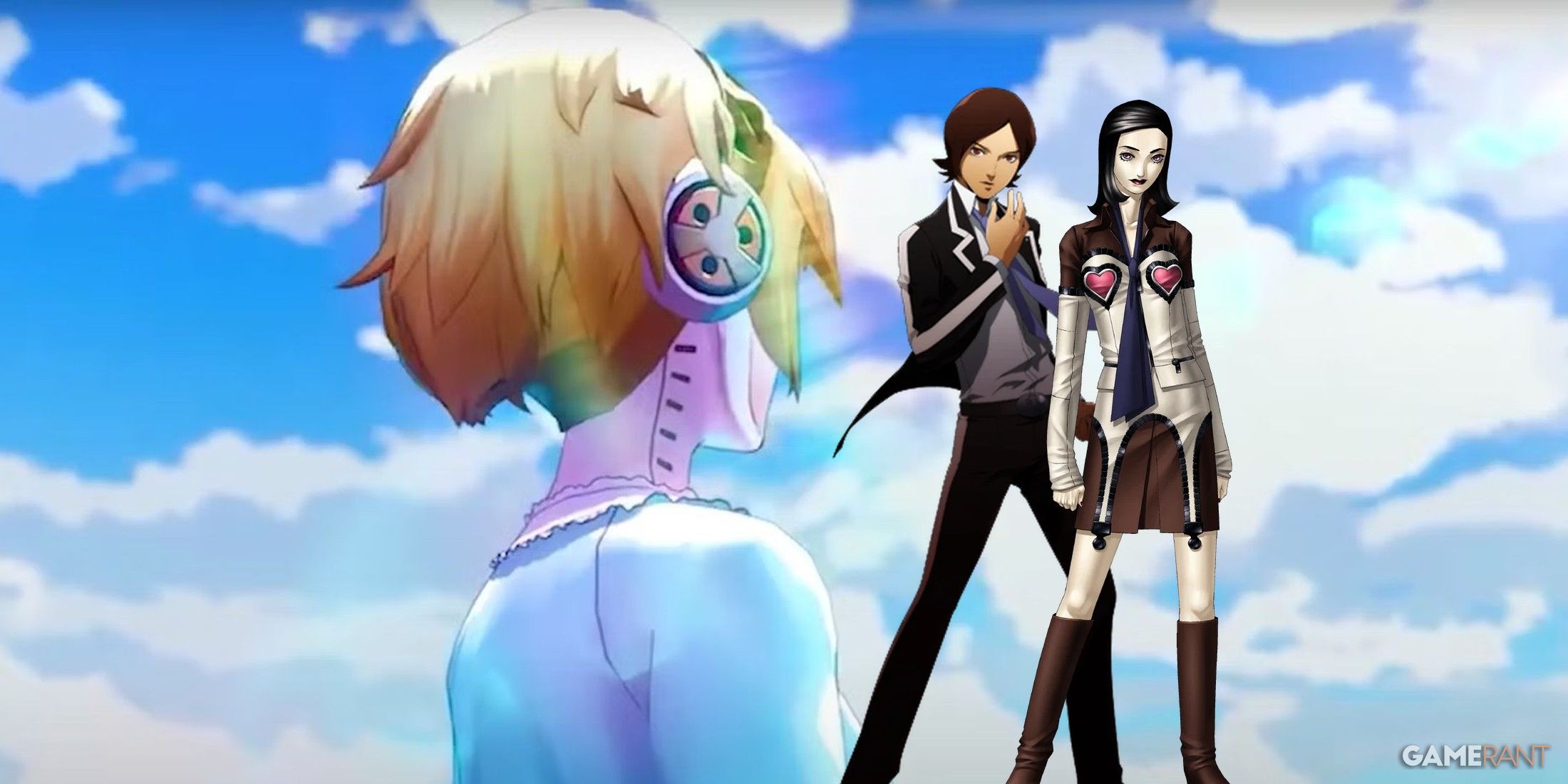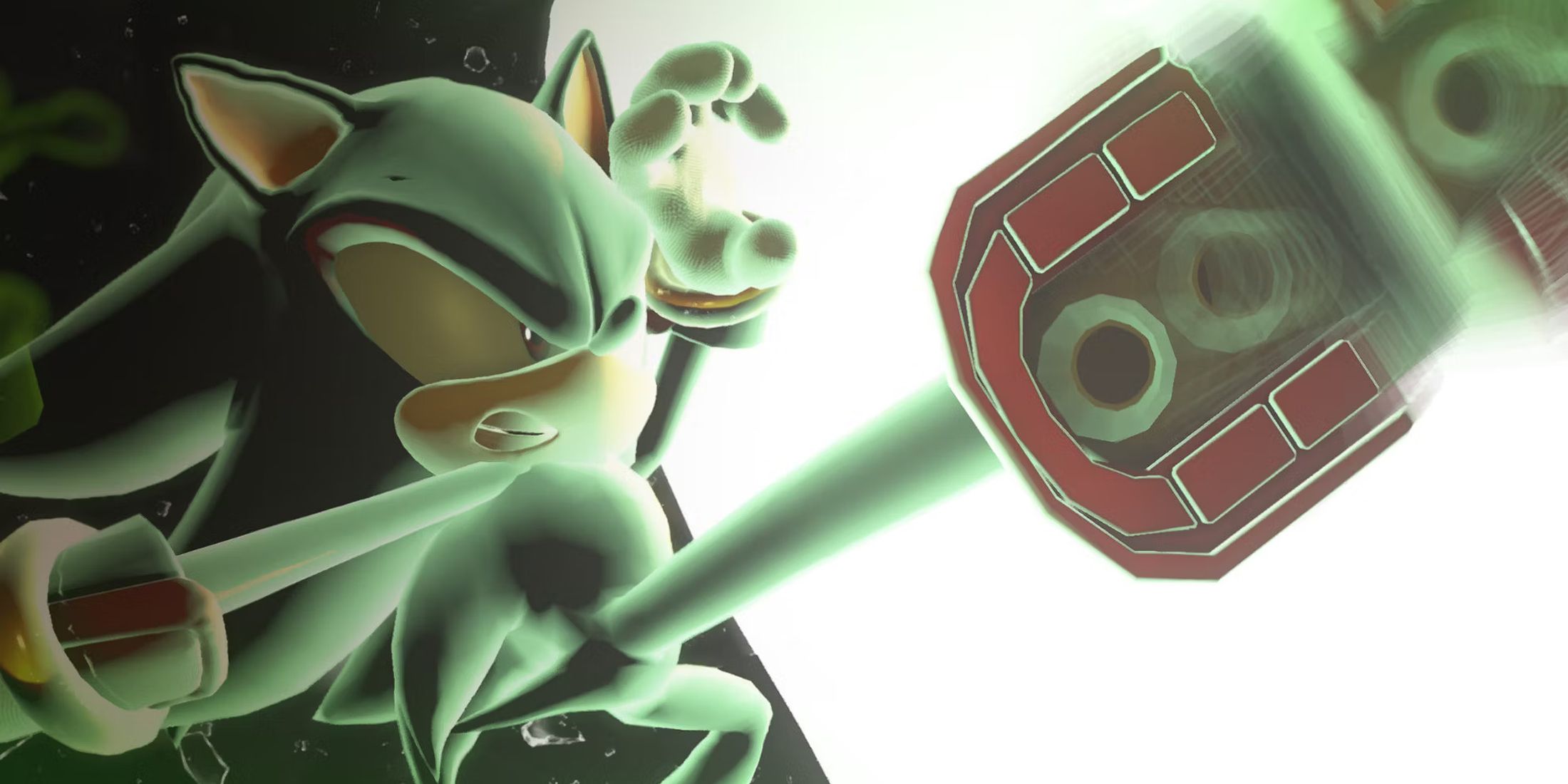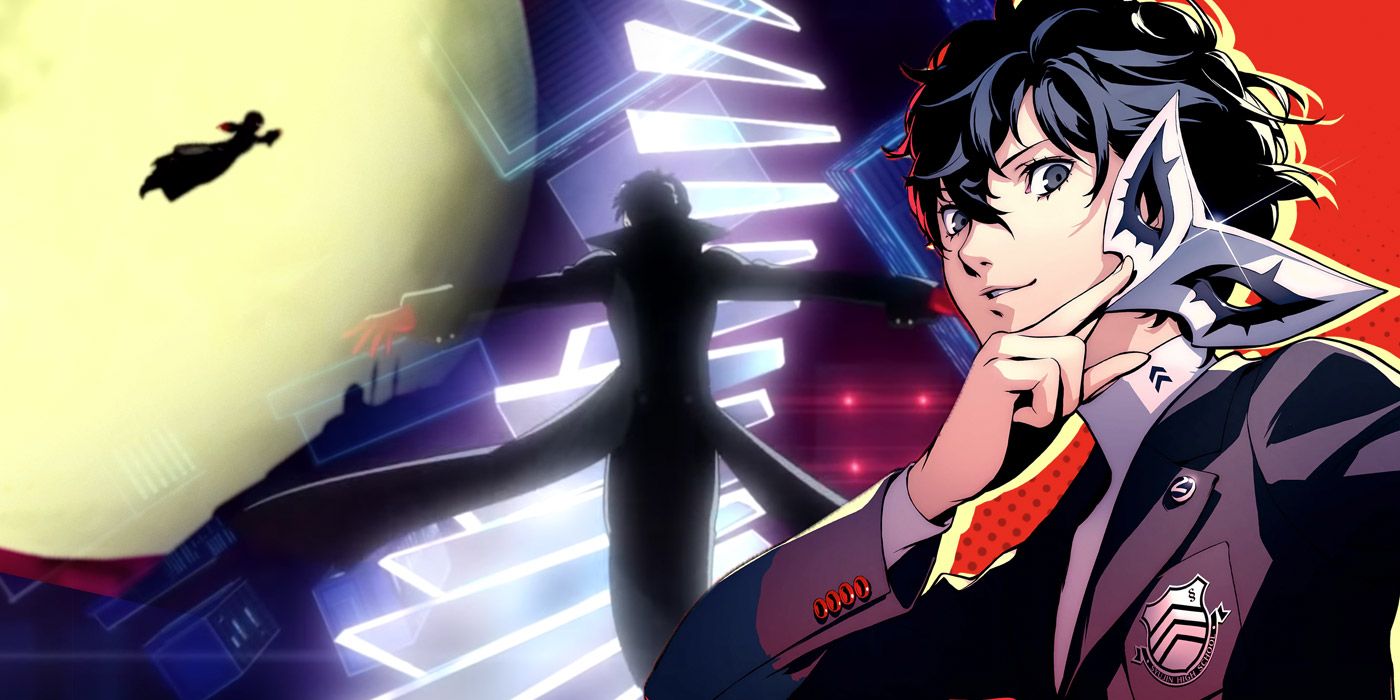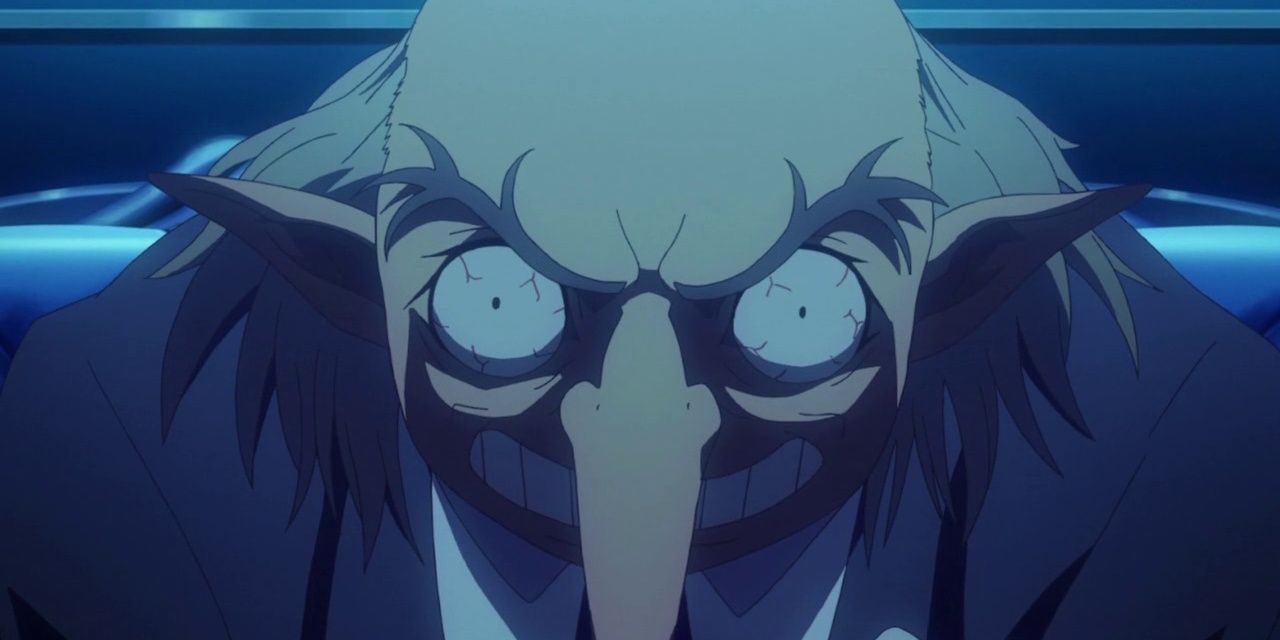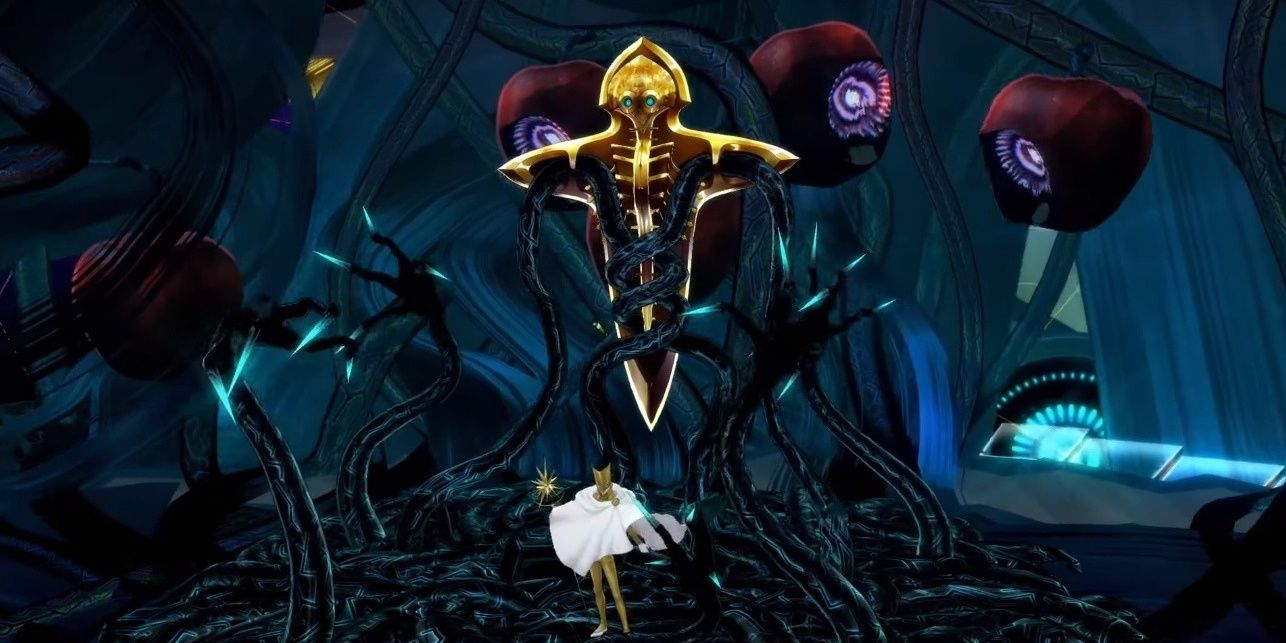It's a common meme for JRPGs to always end their narratives with "killing god," or more accurately someone/something as powerful as a god. Jokes online always jest about how every Final Fantasy, Dragon Quest, Shin Megami Tensei, or Xenoblade game starts with a simple fetch quest and ends with a cataclysmic final battle. RPGs and their obsession with taking Nietzsche's "God is Dead" adage too literally has become a stereotype deeply ingrained within the genre. Funnily enough, for a lot of games (especially SMT games), this stereotype rings true. Persona 5 comes to mind as an extremely recent and well-received JRPG that follows this stereotype to a T.
There are also many examples where this isn't necessarily true, but pretty much every game contextualizes the final clash in that way. Some games have made significant efforts to curb this stereotype, with one particular example being in Persona 5 Royal. Without diving into story spoilers yet, Persona 5 Royal follows in the footsteps of the base game, but also drops hints along the way that something isn't as it seems. What follows is an unprecedented flipping of expectations that takes the original's god-hood and transposes it on to an unexpected antagonist. It's a clever, if simple/predictable change that makes Royal's ending far more impactful compared to the base game. Note: Spoilers for Persona 5 Royal's third semester and true ending follow.
Every JRPG Features the "Killing God" Stereotype, Including Persona 5
The whole "killing god" stereotype is definitely apparent in the original release of Persona 5, with Igor's possession in the Velvet Room by Yaldabaoth. For context, Yaldabaoth is a type of demiurge god, which basically means a figure with architectural ability responsible with maintaining the physical world. In the context of Persona 5, Yaldabaoth presents himself as a "god of control" bred from the collective conscience of humanity's wish to relinquish control of their lives. Joker and the Phantom Thieves, in the good ending of course, lead the rebellion against Yaldabaoth's control over humanity, ultimately destroying the Metaverse.
At least, in Persona 5 Royal, that's what the Phantom Thieves thought they did. This is where expectations were flipped, and lo and behold, Maruki ended up being the true antagonist in the game's extended ending. Maruki, who throughout the entirety of the main game presents himself as an empathetic guidance counselor with ambitious ideas, ends up being the one intent on shepherding humanity's success through control. It's an incredibly subtle subtext that's hidden in every confidant encounter with Maruki, serving as a through line that culminates in Maruki's ultimate realization of villainy.
Persona 5 Royal Flips Expectations Subtly and Intelligently
Persona 5 Royal's changing of the antagonist and ending was a clever, albeit simple plot twist that paid off in droves. Persona 5's original end finishes just like any other JRPG's version of killing god, but for Royal to co-opt that moment into the true embodiment of a more complex villain was a genius narrative design. Players are made aware of Maruki's research into cognitive science through their many encounters with very little sense of malice in his intentions. However, it's not until it's too late and players trigger the third semester where they're supposed to realize that Maruki's research may have been more important than the game initially let on.
At the end of the day, Maruki and his Persona do eventually achieve a god-like status in the game, but it feels far more rewarding in build up compared to Yaldabaoth. Rather than just emphasizing this ambiguously nefarious desire to "control" humanity, players understand Maruki's motivations as a villain were initially born from the best intentions. Persona 5's intelligent emphasis of participating in and completing confidant routes shines here, as Maruki is meant to be an admirable ally. The game even contextualizes this further with his confidant rank bonuses being some of the best in the whole game. Persona 5 Royal made this "god" much more than just an omniscient cynic of humanity, he was a human hell-bent on improving humanity at any cost.
Persona 5 Royal's Villain Sets a High Bar for Persona 6
Of course, many are expecting the next Persona game to iterate and improve upon Persona 5 into a more ambitious entry. That's all well and good, but one thing that Persona 6 should absolutely inherit from Royal is its true villain's narrative design. Being able to subvert expectations of the game's main antagonist in such a simple, thorough, subtle, and impactful way raises the bar really high. Achieving a villain design that's relatable is good for any story-based medium, but for JRPGs it's especially challenging. JRPGs have always been based on the "hero's journey" literary framework, so designing a villain that players don't automatically hate is an accomplishment.
Then again, Persona 5 has raised the bar for the series as a whole in numerous ways. Even if Persona 5's narrative was comparatively predictable compared to previous entries like Persona 4 Golden, it's undeniable that Royal's ending is the definitive climax for the fifth entry. Expectations for the next Persona 6 are going to be huge, but if Persona 5 Royal is any indication of what the future P-Studio development team is capable of, Persona's theoretical future seems very bright.
Persona 5 Royal is available now on PS4.

